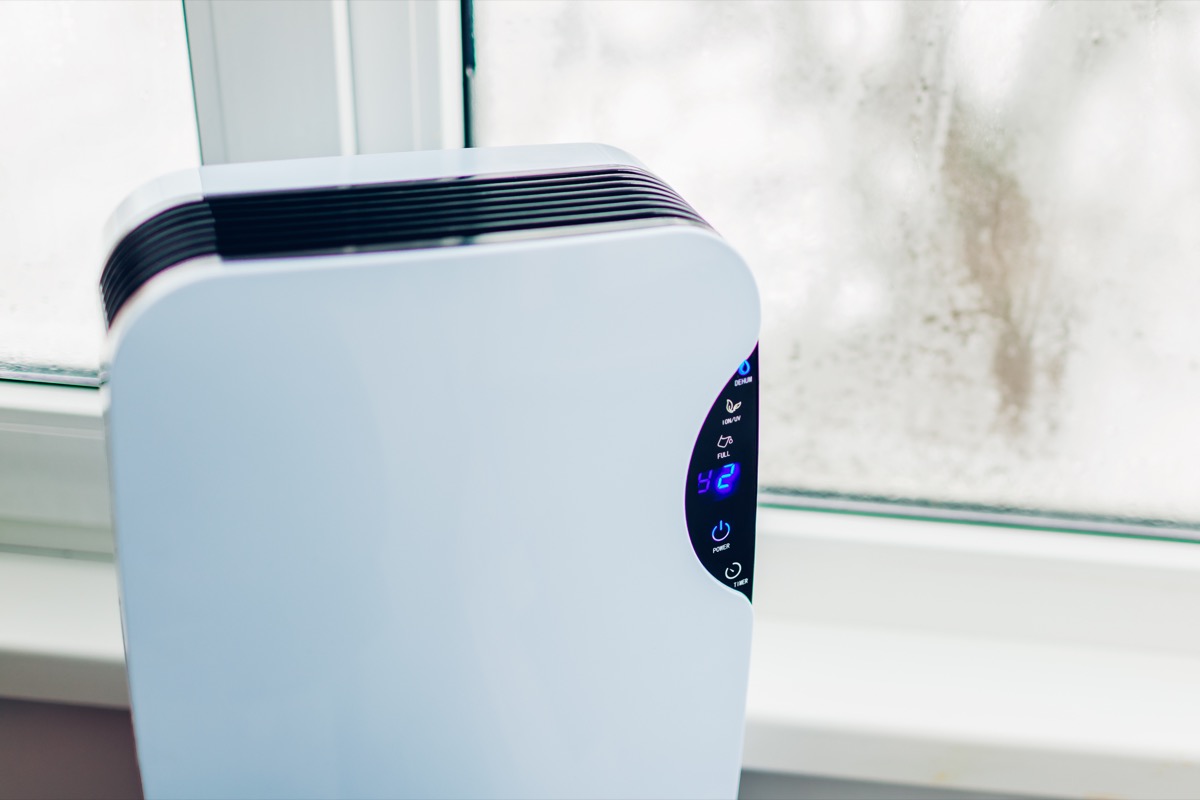That pricey cord of firewood won’t do much good to keep you warm if it’s kept in your basement. The humidity in your basement can make that wood damp—and less than ideal for starting a fire. Worse yet, it could lead to a bug or mouse problem in the future. “Firewood should always be stored outside,” says Mike Charles, owner of Unified Pest Control in Grand Rapids, MI. “If you transmit firewood into the basement, it gives pests the opportunity to hitch a ride and later spread throughout your home.” It may be convenient to use your basement as a de facto pantry, but if you’re storing food down there—especially stuff in easily chewed-through plastic or paper bags—it may not be long before your house is home to unwanted visitors. “Canned items are generally safe, but anything that has been opened before or is not properly sealed is an open invitation for pest problems,” says Charles. The same goes for your pet’s food: If you’re storing Fido’s kibble in your basement, you’re asking for pests to make it their home. If you happen to feed your pets in the basement, make sure to take their dishes upstairs with you when you turn in. “Do not leave pet food or water bowls out overnight,” says Scot Hodges, VP of Professional Development and Technical Services for Arrow Exterminators, who recommends storing any leftover food in sealed plastic or metal containers and keeping those containers on shelving instead of the floor. While plastic storage boxes may keep things safe in your basement, cardboard boxes could actually attract pests. “Cardboard boxes…can provide ideal harborage for a multitude of pests, including rodents, insects and spiders,” explains board-certified entomologist Nancy Troyano, director of operations education and training for Ehrlich Pest Control. And for more great content delivered straight to your inbox, sign up for our daily newsletter. A surprising item you shouldn’t keep in your basement? “Anything that creates moisture, such as humidifiers,” says Troyano. Instead, she recommends adding a dehumidifier to your basement to keep pests at bay. Think you can safely store that stack of old magazines you’re saving for inspiration in your basement? Think again. “These are a food source for insects such as silverfish, and stacks/piles provide a safe place for spiders and insects to hang out,” explains Troyano. And if you’re ready to clean house, start with these 17 Super Clever Ways to Get Rid of Junk. While you may want your kids’ instruments to stop cluttering up the living room, the basement isn’t the right place to store them. “The basement is the worst place to store an instrument,” says Lucas Workman, a brass repair technician at Siegfried’s Call, a New York-based horn outfitter. “Moisture…can affect the finish of the instrument. The residual water in them can grow into mold, [and] the pads and the fabric in woodwinds can start to crack.” And to avoid future storage snafus, check out these 33 Items You’re Storing All Wrong. Your beloved family photo albums won’t be long for this world if you’re keeping them in the basement. “Your photos will not survive humid environments and over time, even dryness will make them brittle,” says Karin Socci, a Master Certified KonMari Consultant and owner of The Serene Home. “It’s far better to transfer the media to cloud-based formats so that you will have images that are easy to share.“ae0fcc31ae342fd3a1346ebb1f342fcb If you’ve got family heirlooms you’re hoping to pass on, it’s never a safe bet to store them in the basement. “A pipe could burst or unusual weather activity could cause unexpected flooding,” says Socci. “If you have ever witnessed the aftereffects of a flooded basement, you know that water and mildew spare nothing.” The deed to your house, your car title, and your tax return should be stored somewhere safe—but your basement isn’t that place. “Documents should not be kept in either the attic or the basement,” says professional organizer Susan Santoro, founder of organizing website Organized31. Instead, she recommends keeping them in a climate-controlled home office, or somewhere else with fewer temperature fluctuations. Humid environments, like basements, are prime real estate for mold and mildew, meaning you won’t want to store bedding down there unless it’s well-sealed. Even if they don’t get moldy, you probably don’t want to press your face and body against something that smells like a basement, anyway. Your children’s beloved toys have no business in your basement. Firstly, there’s the ever-present risk of mold and mildew. Secondly, basement storage means you’re risking water damage courtesy of burst pipes. Thirdly, the brutal cold and intense heat you may find in a basement without an HVAC system can also cause the batteries inside electronic toys to burst. And lastly, two words: pest damage. Putting your bike in the basement may keep it out of the way, but it can also make it unusable when you need it. The temperature fluctuations in your basement can cause your tires to lose pressure, so it’s best to store it in a more climate-controlled space when possible. If you want to keep your wine delicious and drinkable, your basement—with its fluctuating temperatures—isn’t the place to do so. According to Wine Spectator, the ideal conditions for storing wine are between 45 and 65 degrees Fahrenheit, and between 50 and 80 percent humidity—parameters your basement is likely to exceed, especially if you also use it as a laundry room. If your basement is home to your furnace, it’s probably a good idea to keep spare gas cans somewhere else. As a general rule, anything combustible, like gasoline, should be given wide berth from potential fire hazards like furnaces. Surprisingly enough, cat litter is yet another product you’re better off keeping out of the basement. In addition to potentially clumping when it’s exposed to moisture like the humidity in your basement, if you’re actually letting your pet use your basement as a bathroom, litter dust could actually corrode your furnace, according to the experts at Standard Heating & Air Conditioning. The temperature fluctuations in your basement make it a poor choice for storing propane. Propane tanks can explode if left in extreme heat, so if your basement gets unseasonably warm, it could spell danger. In one notable 1983 incident, in Buffalo, New York, six people—five of them firefighters—were killed and 70 more were injured from a fire and explosion caused by illegally stored propane. And for more storage mistakes to avoid, check out these 17 Things You Should Never Store in Your Attic.




